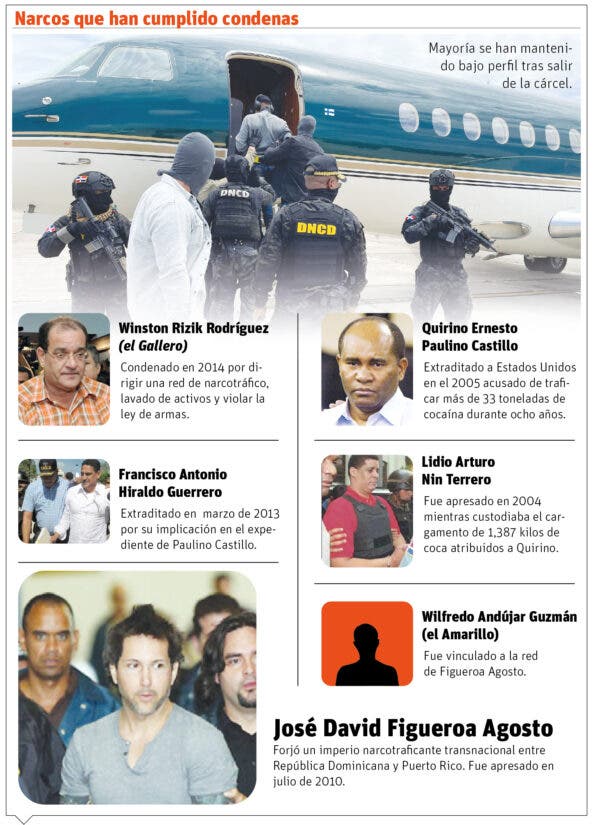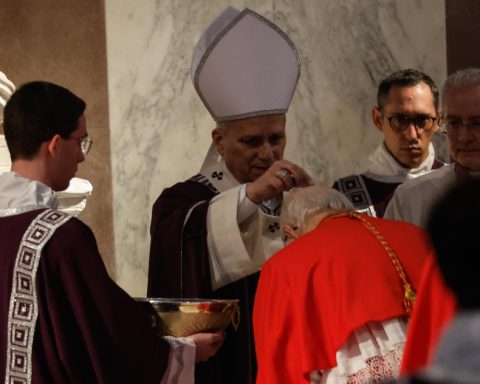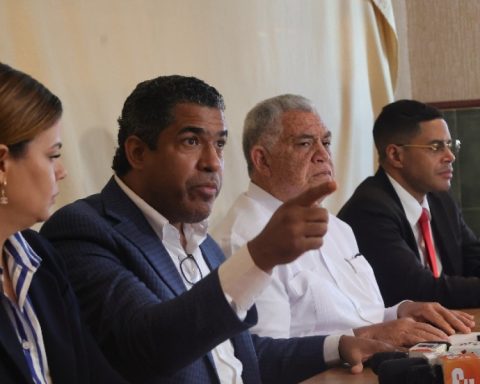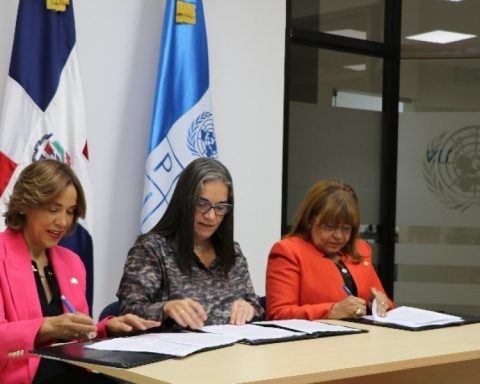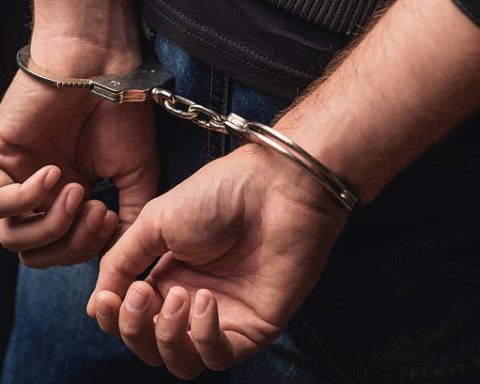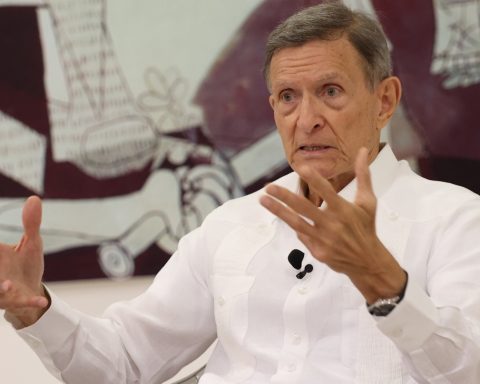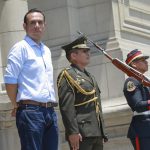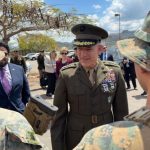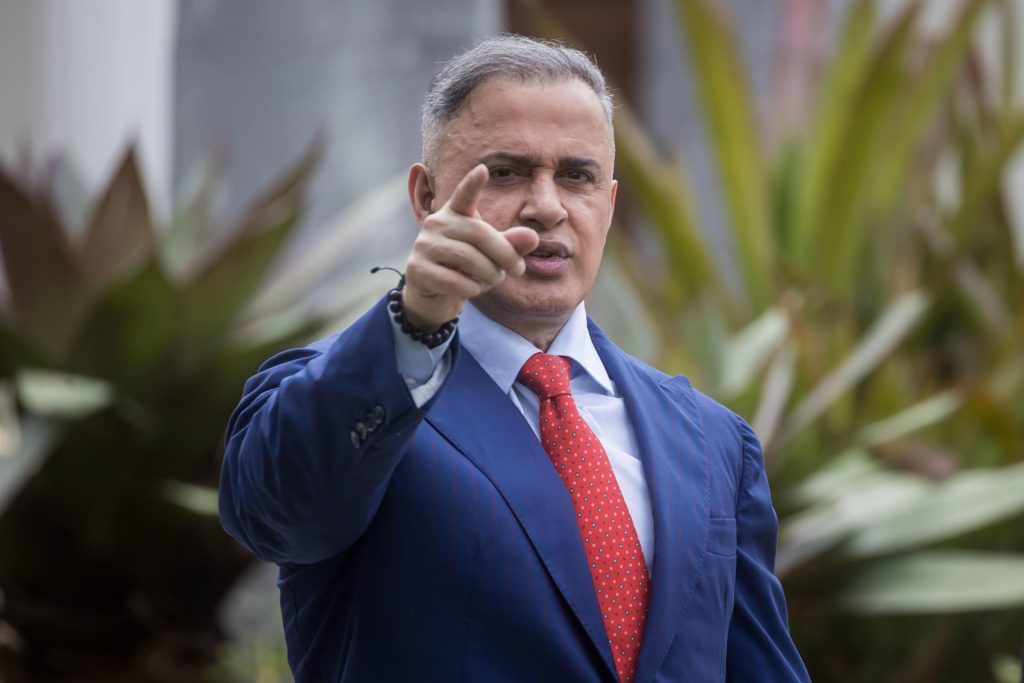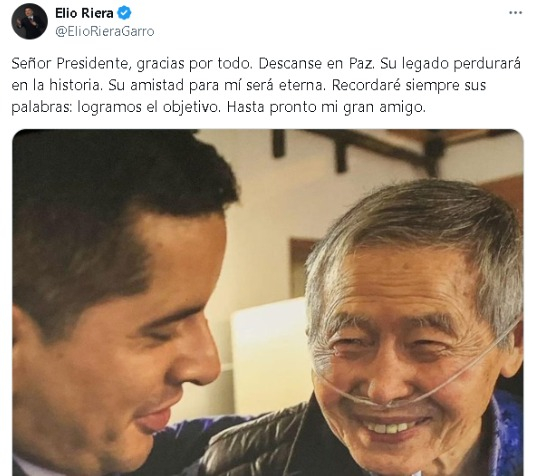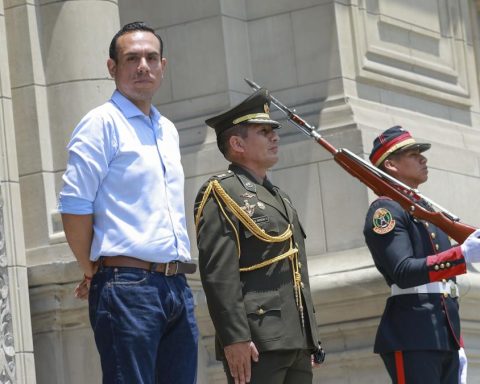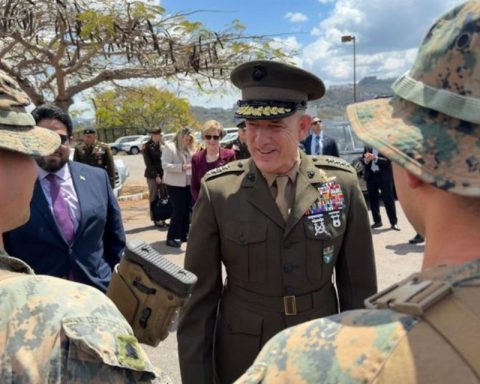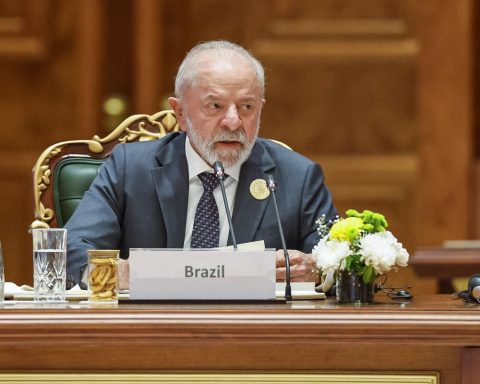Santo Domingo.-In recent years, nine drug traffickers or leaders of criminal networks, whose cases attracted national and international attention, have been released after serving their sentences in the Dominican Republic and the United States.
The most recent case is that of Winston Rizik Rodríguez (El galllero), who is at home after leaving the Rafey-Hombres Correctional and Rehabilitation Center in Santiago, after serving a 10-year prison sentence for running a drug trafficking network, money laundering and violating the weapons law.
Added to that list are Quirino Ernesto Paulino Castillo, José David Figueroa Agosto, former colonel Lidio Arturo Nin Terrero, Yubel Enrique Méndez (Oreganito), Wilfredo Andujar Guzmán (El Amarillo) and the former head of operations of the National Directorate of Drug Control (DNCD) Francisco Antonio Hiraldo Guerrero.
In February 2015, Paulino Castillo returned to the country via Las Americas International Airport from New York City after being released by order of a judge in the Southern District of New York, after serving ten years in prison.
Figueroa Agosto, or “Junior Cápsula,” was released in March 2020 after serving a 10-year sentence in the United States.
Quirino case
In June 2011, former National Police Colonel Lidio Arturo Nin Terrero was repatriated to the country with a group of 80 Dominicans from the United States, after serving a sentence for drug trafficking.
Méndez, alias Oreganito, was released by the United States less than five years after being extradited and without informing the Dominican authorities, who realized that he was in the country when he was injured in a failed attempt to assassinate him by two hitmen in May 2015. He later died of Covid-19 in May 2021.
Andújar Guzmán, alias “El Amarillo,” also won his freedom. He served a sentence in the United States after being extradited in 2002.
Hiraldo Guerrero returned to Dominican territory after serving a three-year sentence in the United States for conspiracy to traffic cocaine into the United States.
The extradition of Hiraldo Guerrero was motivated by confessions from former officers Quirino Ernesto Paulino Castillo and Carlos Rossó Peña, both convicted in the US for drug trafficking.
The former head of operations for the DNCD pleaded guilty to drug trafficking and being part of a network that transported cocaine to the United States.
Surveillance
Although those convicted of drug trafficking regain their civil rights like any other ex-convict upon their release, they are monitored passively by the authorities using intelligence due to their high criminal profile, a source explained.
“It’s not that they are strictly monitored, but they are always on the lookout. In other words, there is passive surveillance, but if any new developments are detected in relation to their activities, the surveillance becomes active, low profile and strictly confidential,” he said.
Repeat offenders
Two examples of this type of case are Ernesto Guevara Díaz (Maconi) and Ramón Antonio del Rosario Puente (Toño Leña), who were arrested again and convicted of drug trafficking after having been extradited and convicted in the United States.
In March 2020, Maconi, a former lieutenant of Quirino Ernesto Paulino Castillo and linked to the trafficking of thousands of kilos of cocaine to the United States, was convicted for the second time for drug trafficking, this being the first time in Dominican territory.
Guevara was sentenced to 20 years in prison for international drug trafficking, after being charged with the stash of 1,570.41 kilos of cocaine confiscated aboard the cargo vessel Kaluba in December 2017.
Ernesto Bienvenido Guevara was extradited in 2009 for the Paulino Castillo case, and after an agreement his case was dismissed by the judge of the Southern District Court of New York, being then sent to Puerto Rico, where he was sentenced to five years in prison, which was reduced to 12 months, for pleading guilty to a stash of more than one hundred kilos of cocaine seized in 2002.
In April 2020, del Rosario Puente (Toño Leña) was sentenced to 15 years in prison by the Federal Court of the Southern District of Miami after being found guilty of drug trafficking again.
Toño Leña was arrested while trying to enter Bogotá, Colombia, with his wife and daughter in May 2018. He was extradited to the US in April 2021.
In his first extradition for drug trafficking in December 2011, Toño Leña reached a plea agreement with the authorities of that country.
Toño Leña returned to the country in 2015, after serving five years in prison in Puerto Rico.
It is worth noting that the vast majority of drug traffickers, when extradited to the United States, end up negotiating light sentences in exchange for valuable information for the authorities in that country.
In the absence of application of the Asset Forfeiture Law, which was enacted by the Executive Branch in 2022 and is awaiting its implementing regulations, drug traffickers prefer to sign, if required, extradition to the United States because once they serve their sentence or reach an agreement with the North American authorities, they can return to the country and keep the assets acquired as a result of illicit activities.
Extraditables
—1— Extradited
So far this year, authorities have extradited 53 wanted Dominicans to the United States, Europe and South America.
—2— Treaty
In 1909, the Dominican Republic signed the Extradition Treaty with the United States, which entered into force on August 2, 1910. In 2016, a new extradition treaty was made official.
